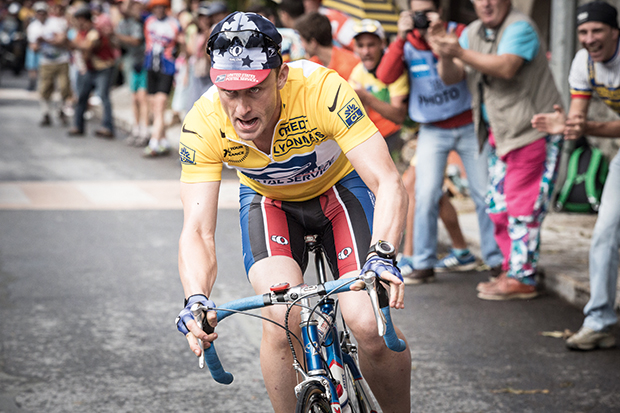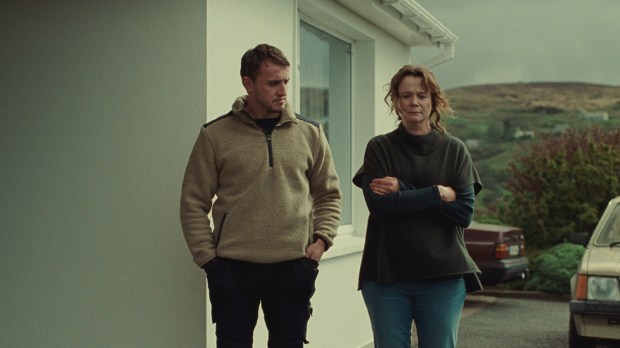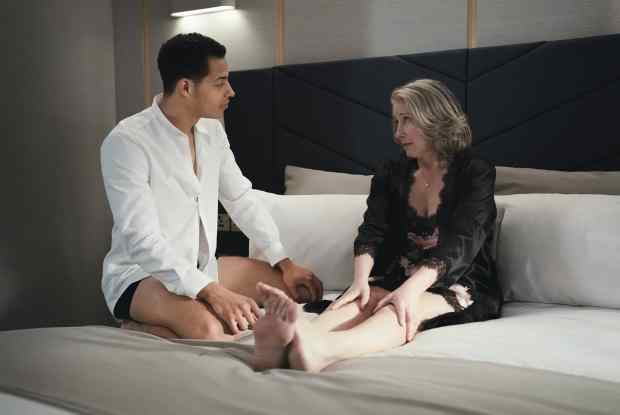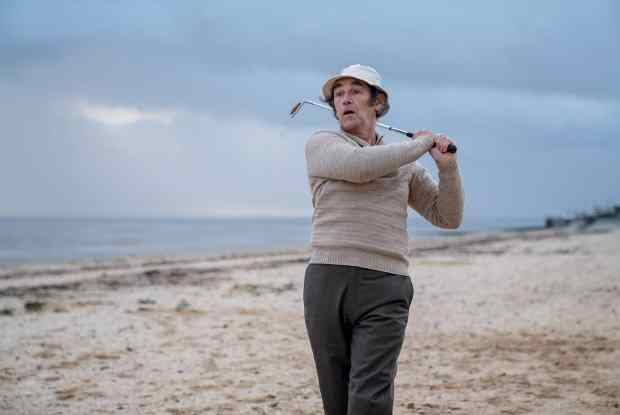The Program, as directed by Stephen Frears, is a biopic of Lance Armstrong, the American cyclist and ‘sporting hero’ who came back from cancer to win the Tour de France seven times before he was exposed as a drugs cheat. It is a thrilling fall-from-grace story, the sort that brings you out in goosebumps just thinking about it — to know you have cheated, to know you are about to be found out, to live with having been found out; how might any of this feel? This should have served Armstrong up on a plate, but it somehow doesn’t. It covers the ground, but it’s underpowered dramatically. It’s like watching a perfunctory documentary, acted out. It doesn’t give us the man. I wanted to see him unravel. I wanted to taste his shame, and maybe even roll about in it a bit. But none of that is forthcoming. So you’ll likely feel cheated by this, too.
It stars Ben Foster as Armstrong, who is terrific. Even though Armstrong is never allowed to be more than a cold fish who is sometimes a bullying cold fish, Foster is strangely riveting, and does keep you watching long after you’ve run out of interest in everything else. (He is to this film what Carey Mulligan is to Suffragette, you could reasonably say.)
The film opens with him as he pedals hard and furiously, uphill and downhill, through spectacular mountain scenery, breathing hard. It’s 1991, his first Tour de France, which is where he first meets the Sunday Times sports reporter David Walsh (Chris O’Dowd), who went on to question Armstrong where others wouldn’t, and on whose book (Seven Deadly Sins: My Pursuit of Lance Armstrong) this is based. I’d imagined the film would adopt a cat-and-mouse structure, with Walsh closing in on his prey, step by step, inch by inch, but, in fact, Walsh feels strangely disconnected and is often abandoned in London, where he spends all his time arguing tediously with his boss. He feels like a bystander, and when Floyd Landis (Jesse Plemons), one of Armstrong’s former teammates, finally opts to spill all the beans elsewhere, Walsh is pushed out altogether. It’s as if one half of the story can’t be bothered to go meet the other half. If there’s a story at all.
The film lacks a dramatic structure, or any narrative oomph. In fact, it could have done with a good dose of performance-enhancing drugs itself. It plays mostly as a chronological, tick-boxing exercise. Here’s Armstrong hooking up with the creepy Italian doctor Michele Ferrari, who is played by Guillaume Canet as part Bond villain and part Gino D’Acampo, and who introduces Armstrong to blood transfusions, alongside all the other substances. Here’s Armstrong bullying the rest of his teammates into joining ‘The Program’. Here’s Armstrong avoiding a positive test by diluting his blood. Here’s Armstrong appearing before some Tour officials, who have their suspicions, but who let him off because, as he tells them, the sport’s over if they take any action. (I would have liked more on the corruption at the top.) Here’s Armstrong looking you in the eye and saying, ‘I have never tested positive.’ And, ‘I’m the most tested athlete in the world.’
So there is all this, none of which we didn’t know already, and all the while it makes no concession to his personal life at all. He meets and marries his wife in two split-second scenes and then she is never heard of again. Even when he is seen at home, in just the sort of house you’d expect Lance Armstrong to live in — mansion-style, beige, soulless — there is no sign of any wife or children. (They had three.)
Unlike The Queen, for which Frears was nominated for an Oscar, The Program does not illuminate its subject in any way and is as underpowered psychologically as it is dramatically. Where does Armstrong’s horror of losing come from? Why was winning so important that he would do whatever it took? Where has he put his wife and children? Even if Armstrong is a sociopath, or suffers from some kind of narcissistic personality disorder, as seems likely, might we not have been awarded some indication of where this personality came from? Some nod to childhood, perhaps, rather than yet another scene of him injecting the illegal drugs? (If you are needle-phobic, btw, The Program is not for you.)
By the end, this film seems bored of itself, rushing through Armstrong’s unravelling in an instant, and giving no time to the fall-out at all. At the very least, I would have expected to return to Walsh, who had been successfully sued by Armstrong, and who had lost his newspaper £1 million. But this is skipped over, as is Armstrong’s confession to Oprah, which merely plays over the closing credits. So you’ll likely feel cheated, but then this is Lance Armstrong, so I guess you could also say: what’s new?
Got something to add? Join the discussion and comment below.
Get 10 issues for just $10
Subscribe to The Spectator Australia today for the next 10 magazine issues, plus full online access, for just $10.
You might disagree with half of it, but you’ll enjoy reading all of it. Try your first month for free, then just $2 a week for the remainder of your first year.














Comments
Don't miss out
Join the conversation with other Spectator Australia readers. Subscribe to leave a comment.
SUBSCRIBEAlready a subscriber? Log in